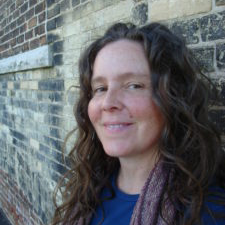Teams Like This
As global temperatures continue to rise, the intensity and frequency of droughts in North America are expected to increase, leading to a wide range of social and ecological impacts. To ensure that nature and its associated benefits are sufficiently incorporated into future planning for drought impacts, this team is evaluating the breadth of ecological impacts of reductions in water availability and the resulting consequences for both natural and human communities.
OUR APPROACH: This group is synthesizing and connecting information about the impacts of drought on both human and natural systems in order to highlight opportunities to mitigate drought risks.

Reframing the Drought Conversation
The team defines ecological drought as “an episodic deficit in water availability that drives ecosystems beyond thresholds of vulnerability, impacts ecosystem services, and triggers feedbacks in natural and/or human systems” (Crausbay, 2017). With this definition in mind, the team created an ecological drought vulnerability framework to help drought researchers, resource managers, and decision-makers understand: 1) both drought exposure and drought sensitivity play a role in ecosystem vulnerability, and each is controlled by natural and human processes, 2) ecological drought’s impacts are transferred to human communities via ecosystem services, and 3) knowing the specific drivers of vulnerability can lead to effective preparedness strategies to reduce ecological drought vulnerability in the future.

“It is time for ecosystems to have a seat at the drought decision-making table, with the realization that an investment in water for nature may also be an investment in water for people. A more holistic planning and research approach that includes ecological drought means both people and nature will be better prepared for the rising risk of drought.”
-Shelley Crausbay, Team member
EcoDIVA is a process to inform planning by considering the ecological drought impacts that people care about most, the particular vulnerabilities that lead to socio-economic and ecological losses and how those specific vulnerabilities link to opportunities for implementing drought adaptation strategies.
This paper examines the fragmented patchwork of actors whose intersecting authorities and actions influence the spread of ecologically available water in the basin, assessing the extent to which the collective governance regime creates gaps in responsibility.
In this peer-reviewed paper in the Bulletin of the American Meteorological Society, the team defines “ecological drought” and proposes a drought vulnerability framework to identify the drought risks that different communities might face.
This SNAPP team hosted a symposium at the National Adaptation Forum that focused on sharing the results of their research thus far.
The Nature Conservancy
Wildlife Conservation Society
US Geological Survey (USGS)
University of California, Santa Barbara
US Geological Survey
National Integrated Drought Information System
University of Nebraska & National Drought Mitigation Center
Montana State University
US Geological Survey (USGS)
US Geological Survey (USGS)
US Forest Service
US Geological Survey (USGS)
US Geological Survey (USGS)
University of Nebraska & National Drought Mitigation Center
Emerson College
University of California, Santa Barbara
Alaska Pacific University
Climate Central